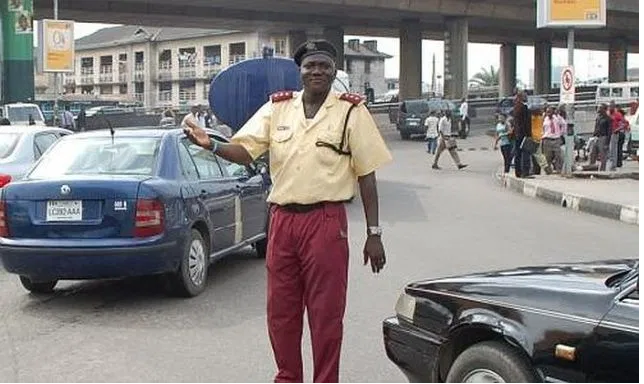
The Lagos State Traffic Management Authority (LASTMA) has earned a detestable reputation with motorists. This stems from allegations of corruption and highhandedness emanating from the agency’s indiscriminate arrests of motorists, extortions and imposition of heavy unjustified fines.
But the situation, which has occasionally stirred outrage, has got a legal reprimand that will likely change LASTMA’s method of operation.
On Friday, Justice Olalekan Oresanya of the Ikeja High Court, Lagos, ruled that it’s illegal for LASTMA to impose fines and tow vehicles impounded by its officers.
Register for Tekedia Mini-MBA edition 19 (Feb 9 – May 2, 2026): big discounts for early bird.
Tekedia AI in Business Masterclass opens registrations.
Join Tekedia Capital Syndicate and co-invest in great global startups.
Register for Tekedia AI Lab: From Technical Design to Deployment (next edition begins Jan 24 2026).
The judge said in his ruling that there was no part of the Lagos State Traffic Management Law that gives the agency the power to deprive citizens of their right to freedom of movement.
“Public authorities and bodies cannot act in a manner that is inconsistent and incompatible with the fundamental rights of citizens as guaranteed by the Constitution of the Federal Republic of Nigeria, which is the grundnorm,” the judge said.
LASTMA practices became a legal issue following a November 2021 incident, where the agency’s officers impounded the vehicle of one Lawal Aliyu, a legal practitioner, and fined him N20,000 for alleged traffic offence and additional N10,000 as the cost of towing his vehicle. Aliyu had filed a suit challenging LASTMA’s right to impose such fines.
In his ruling, Justice Oresanya added that towing of vehicles and imposition of fines by LASTMA amounts to abuse of people’s rights. He said that even in countries where parliamentary laws are supreme, such as the United Kingdom, public bodies do not act in a manner incompatible with the rights of citizens as enshrined in the European Convention on Human Rights.
LASTMA had argued that its officers rely on the provisions of the law to carry out its operation. But the judge explained that no section of the Lagos State Traffic Management Law empowers traffic officers to impose fines without arraigning the alleged offender in court, to ensure a fair hearing.
“I must add that it is strange and bizarre that the first respondent (LASTMA) towed a serviceable vehicle in good working condition and thereby caused damage to the vehicle in the process when it has not been established that the applicant resisted the arrest of his vehicle, only for the first respondent to subsequently impose a fine on the applicant for a service not solicited by the applicant,” the judge said.
He described the situation as “the height of oppression and impunity,” adding that it is condemnable. He consequently awarded N750,000 in damages against LASTMA.
“On the whole, I give judgment for the applicant in the following terms; I make a declaration that the obstruction, towage, seizure, and impoundment of the applicant’s car with Registration NO. AGL 93 DW on the 23rd November 2021 by the respondents is unlawful, illegal, and unconstitutional as the same amounted to gross violation of the applicant’s fundamental right to freedom of movement enshrined in Section 41 of the Constitution of the Federal Republic of Nigeria, 1999 (as amended),” he held.
“I make a declaration that the imposition and enforcement of LASTMA fine in the sum of N20,000 and LASTMA Towing fine in the sum of N10,000 on the applicant without an order of a court of competent jurisdiction is unlawful, Illegal and is null and void and the said fines should be paid back by the respondents to the applicant.
“The sum of N750,000 compensatory damages is awarded against the respondents for the violation of the applicant’s fundamental rights,” he said.
The Lagos State government has for long, failed to address the concerns of Lagos motorists respecting the activities of LASTMA officers on the field, stirring the belief that the state government is using the agency to generate revenue.
Against this backdrop, Lagosians have applauded the court’s ruling, hoping it would help to curtail LASTMA’s excesses.



